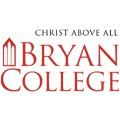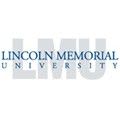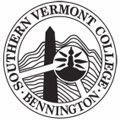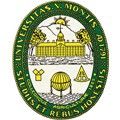Best Vermont Colleges & Universities

Vermont is preparing to help students enter the workforce in large numbers. According to the Lumina Foundation, Vermont has set a goal for 60 percent of all state residents to earn an associate or bachelor's degree by 2020. To help reach this ambitious goal, Vermont is working on implementing numerous initiatives that promote career awareness, inspire low-income students to pursue the college track, enhance student engagement and increase dual enrollments. This guide examines Vermont colleges and compares their affordability, financial aid availability, what alumni make, the student debt alumni carry and even the cost of living in metro areas of the state in order to help aspiring students know what to expect when attending colleges in Vermont. A list of student resources is also available.
Vermont College Leaderboard: Rankings
Students looking for a quality Vermont college experience can typically find it at one of these impressive schools. We looked at factors, such as graduation rates, student-to-teacher ratios, tuition cost and earnings after graduation, to compile a list of rankings of the best Vermont colleges. Aspiring students can use this ranking list to help start their college search
Rankings Methodology
- Located in Vermont
- Public or private not-for-profit
- Institutionally accredited
- At least 10 total programs
- Median annual alumni earnings 10 years after entering the college
- In-state tuition and fees for undergraduates
- Student/teacher ratio
- 6-year graduation rate
- % of students receiving institutional financial aid (first-time, full-time undergrads)
- Average amount of institutional aid awarded per student (first-time, full-time undergrads)
- Availability of placement services upon completion
- Availability of academic/career counseling services
- Availability of employment services
- 3-year student cohort loan default rate
Integrated Postsecondary Education Data System (IPEDS): National Center for Education Statistics
Latest 'Final Release' data available as of Fall 2016 College Scorecard: U.S. Department of Education
2-Year Programs
Community College of Vermont
4-Year Programs
Middlebury College
Saint Michael’s College
Norwich University
University of Vermont
Marlboro College
Champlain College
Vermont Technical College
College of St Joseph
Johnson State College
Bennington College
Castleton State College
Lyndon State College
Southern Vermont College
Green Mountain College
Goddard College
Vermont College Search & Compare Tool
Sometimes students may want to look at their own particular criteria when selecting a well-suited college. The search tool below allows students to filter schools based on the points that matter most to them. Results can then be compared side by side to help provide a great overview of the potential colleges in Vermont.
College Outreach Programs in Vermont
Vermont schools are committed to helping students reach their full potential, so much so that they offer numerous programs that help students plan for college, figure out their academic and financial needs, improve college accessibility for disadvantaged populations, help current students with their college experience and prepare graduates for the workforce. Here are some of the several worthy programs in the state.
College PathwaysThose who are curious about attending college in Vermont, but have no clue where to start, can attend a free College Pathways conference. These conferences answer numerous questions, from how to create a college short list to test-taking strategies to covering college expenses. The events are designed for sophomores and juniors and their parents. Three events are held in March and April of each year. The conferences take place on a college campus, providing students and parents with an opportunity to explore what that college life might be like.
GEAR UP VermontThis program is committed to serving students by providing information on career options, academic support, and information designed to help low-income students pursue a college education. Federal income requirements must be met in order to be eligible for the program. Today, there are over 1,800 students served at 53 Vermont schools. Some opportunities for high school students include career fairs, summer programs, mentoring, tutoring, high school course planning and scholarship opportunities. Parents are also provided resources to help them prepare their children for the college years.
VSAC Talent Search ProgramPart of the federally funded TRIO program, the VSAC Talent Search program targets middle school and high school students. It provides counseling services to help them consider college as a viable goal. Support includes financial aid assistance, academic support, college planning and career planning. Parent events, college enrichment programs and college visits are also options for students in the program.
Cost of College in Vermont: How Does It Stack Up?
What does it really cost to attend college in Vermont? Tuition and financial aid play a significant role when selecting a school. We looked at the tuition rates and financial aid availability for colleges in Vermont to come up with the following charts. We also looked at the national average's tuition costs and financial aid and compared it to the schools in Vermont in order to create a more well-rounded view.
Source: CollegeBoard
Source: IPEDS
Source: IPEDS
* Institutional aid represents grant and scholarship funds directly awarded by a postsecondary institution.
* Financial aid data represents 4-year public and private nonprofit schools only.
Most Affordable Vermont Colleges
Tuition rates can cause serious sticker shock, but it is important to remember that those rates are not necessarily what a student may pay for their education. Net price, tuition rates minus financial aid, is what really matters. These top six schools in Vermont are ranked based on net price and are compared to the national average.
- 1.
 Hiwassee College
Hiwassee College
$11,500 - 2.
 Vanderbilt University
Vanderbilt University
$13,750 - 3.
 Tennessee Technological University
Tennessee Technological University
$15,625
- 4.
 Trevecca Nazarene University
Trevecca Nazarene University
$18,750 - 5.
 Bryan College-Dayton
Bryan College-Dayton
$18,750 - 6.
 Lincoln Memorial University
Lincoln Memorial University
$18,832
Tennessee College Grad Debt Vs. National Average
Median Federal Student
Loan Debt After Graduation
Source: College Scorecard
Note: Rankings/data represent 4-year public and private nonprofit schools only.
Vermont Colleges with Highest Alumni Earnings
How well-off are alumni after graduating college in Vermont? Though income can be dependent upon the choice of degree, the field one chooses to work in and many other factors, some schools do tend to have graduates who make more, on average, than others do. These six colleges in Vermont have produced the highest paid alumni in the state ten years after their enrollment.
- 1.
 Hiwassee College
Hiwassee College
$11,500 - 2.
 Vanderbilt University
Vanderbilt University
$13,750 - 3.
 Tennessee Technological University
Tennessee Technological University
$15,625
- 4.
 Trevecca Nazarene University
Trevecca Nazarene University
$18,750 - 5.
 Bryan College-Dayton
Bryan College-Dayton
$18,750 - 6.
 Lincoln Memorial University
Lincoln Memorial University
$18,832
Tennessee College Grad Debt Vs. National Average
Median Federal Student
Loan Debt After Graduation
Source: College Scorecard
Note: Rankings/data represent 4-year public and private nonprofit schools only.
Colleges in Vermont With Least Alumni Debt
A hefty paycheck is always nice, but that financial elation may take a hit when student loan debt payments come due. These six colleges in Vermont produce alumni with the lowest amount of student debt after graduation. We have also compared those colleges to the national average to provide a better overview of student debt.
- 1.
 Hiwassee College
Hiwassee College
$11,500 - 2.
 Vanderbilt University
Vanderbilt University
$13,750 - 3.
 Tennessee Technological University
Tennessee Technological University
$15,625
- 4.
 Trevecca Nazarene University
Trevecca Nazarene University
$18,750 - 5.
 Bryan College-Dayton
Bryan College-Dayton
$18,750 - 6.
 Lincoln Memorial University
Lincoln Memorial University
$18,832
Tennessee College Grad Debt Vs. National Average
Median Federal Student
Loan Debt After Graduation
Source: College Scorecard
Note: Rankings/data represent 4-year public and private nonprofit schools only.
Vermont Cost of Living: College Expenses Beyond Tuition
Though the cost of living in Vermont is lower than that of some New England states, Vermont's cost of living is still higher than the national average. This means students might need budget more carefully during their time in college. To get a better idea of the costs, we compiled cost of living data for metropolitan areas in Vermont, as well as for the state as a whole.
| area | composite index | housing | groceries | utilities | transportation | health care | misc. |
|---|---|---|---|---|---|---|---|
| Statewide Average | 124% | 153% | 110% | 121% | 115% | 106% | 111% |
Source: The Council for Community and Economic Research
Accrediting Agencies for Colleges in Vermont
Students seeking the best Vermont colleges should always check for accreditation status. Accreditation means a school has been evaluated and found to meet the high standards of a quality education. Accrediting agencies are independent bodies recognized by the U.S. Department of Education that accredit schools throughout a particular area or region.
The New England Association of Schools and Colleges provides accreditation for colleges in Vermont. In addition to this regional accreditation, many schools also opt for programmatic accreditation. Here are a few examples of accredited programs in Vermont:
- The Joint Committee on Education in Radiologic Technology accredits radiology programs at Southern Vermont College.
- The American Physical Therapy Association, Commission on Accreditation in Physical Therapy Education accredits the physical therapy programs at University of Vermont.
Popular College Cities in Vermont
Bennington
Chartered in 1749, Bennington is Vermont's first town. Today, it is home to a handful of small colleges that help make up the town's population of about 15,000. Below are some of the most promising options for higher education in the town.
| College Name | School Type | Annual Net Price | Annual Median Earnings 10 Years After College Only includes former students who received federal financial aid. |
|---|---|---|---|
 Bennington College Bennington College |
Private not-for-profit | $29,960 | $26,500 |
| Chartered in 1749, Bennington is Vermont's first town. Today, it is home to a handful of small colleges that help make up the town's population of about 15,000. Below are some of the most promising options for higher education in the town. | |||
 Southern Vermont College Southern Vermont College |
Private not-for-profit | $21,372 | $34,800 |
| With over 17 majors available, SVC is currently home to 460 students and holds an average class size of 16. Ninety-six percent of students receive financial aid, and 83 percent participate in internships and other off-campus experiences during the pursuit of their bachelor's degree. Originally founded as St. Joseph College, the school took its current name in 1974 and is now a private, independent college with no religious affiliation. | |||
Burlington
Burlington has built up a long list of accolades in recent years. The SpareFoot blog places the city among the Top 12 college towns for commuting on foot. Kiplinger's Personal Finance magazine named Burlington the second best place to live in the U.S. Life is quite creative here too as the Burlington and South Burlington metro areas rank 20th in the nation for the highest concentration of the creative class. Here are some of the great colleges that call this area home.
| College Name | School Type | Annual Net Price | Annual Median Earnings 10 Years After College Only includes former students who received federal financial aid. |
|---|---|---|---|
 Champlain College Champlain College |
Private not-for-profit | $31,564 | $40,400 |
| This small private school has student body of almost 2,200. Student can choose from 30 undergraduate programs, 14 online graduate degrees and certificates, and 16 continuing online undergraduate degrees. The employment rate for graduates is good with 90 percent of them working in their chosen field within one year of graduation. | |||
 University of Vermont University of Vermont |
Public | $14,876 | $44,000 |
| Founded in 1791, the college is the fifth oldest in New England and the first to declare public support for freedom of religion. Today, the college is home to over 12,000 students, including those pursuing undergraduate, graduate, certificates, medical degrees and continuing education. Students can choose from 100 majors spread out over seven schools and colleges. The vast majority of seniors are heavily engaged in research, internships or other experience-based learning to complement their classroom time. | |||
Source: College Scorecard
College Resources for Students in Vermont
Vermont colleges provide excellent resources to help students succeed. Below are some of the state-based programs and resources that students can turn to when starting their college planning journey.
Adult Student HandbookDesigned for non-traditional students, this handbook focuses on the information adult learners need to know, which might be quite different from the requirements and other information necessary for those fresh out of high school.
Association of Vermont Independent CollegesStudents curious about independent colleges in Vermont can find what they need to know here, starting with a list of potential institutions to attend.
Consortium of Vermont CollegesThis consortium works to take the mystery out of college attendance by addressing topics like how to find a school, the Vermont lifestyle, tools and parents.
Vermont Agency of EducationThough this site focuses on K-12 students, there are several programs available that focus on college planning and preparation, such as the Early College pathway.
Vermont Higher Education Investment Plan (VHEIP)VHEIP is Vermont's version of the 529 savings plan for college students. The site offers in-depth information on how the plan works and some of the tax benefits it offers.
Vermont Student Assistance Corporation (VSAC)VSAC helps students with an enormous list of resources, programs and other information on things like planning for college and how to pay for it.
LearnHowToBecome.com is an advertising-supported site. Featured or trusted partner programs and all school search, finder, or match results are for schools that compensate us. This compensation does not influence our school rankings, resource guides, or other editorially-independent information published on this site.
View the most relevant programs for your interests and compare them by tuition, acceptance rate, and other factors important to you.